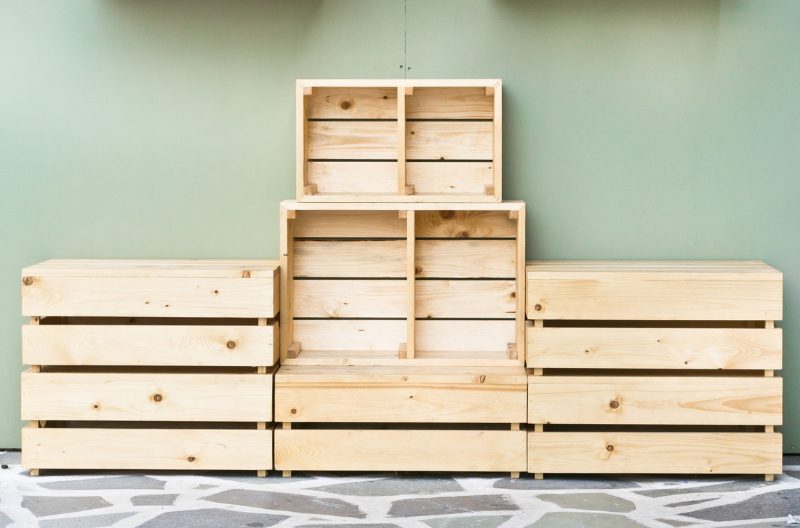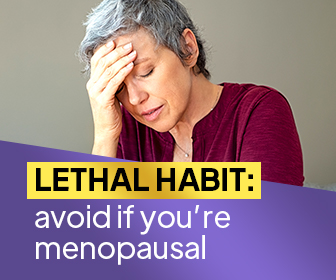How does your house look right now? How about your desk at work? If it looks a bit messy and needs some organization, you can bet your mind does too! It’s time to really think about what’s important in your life, and what things you can let go of. Learning how to declutter might not seem like a priority, but it most certainly should be.
Your house is an indication of what’s going on in your mind. Conversely, your mind becomes a reflection of what’s going on in your home. Decluttering gives you space, physically and mentally.
When you declutter your home, you declutter your mind. Physical disorder and mental untidiness feed off one another. When you take steps to get organized, you are prioritizing your own self-care. You are giving yourself permission to let go of things that only take up negative space in your life.
When you fail to take care of clutter in your life and in your mind, it’s hard to stay on top of everything else that’s going on. Clutter comes from many places in our lives — lack of time, lack of energy, or simply not knowing where or how to start.
Learn how to declutter. Quiet your mind. Find peace in your home. Turn chaos into calmness.
Where Does All That Clutter Come From?
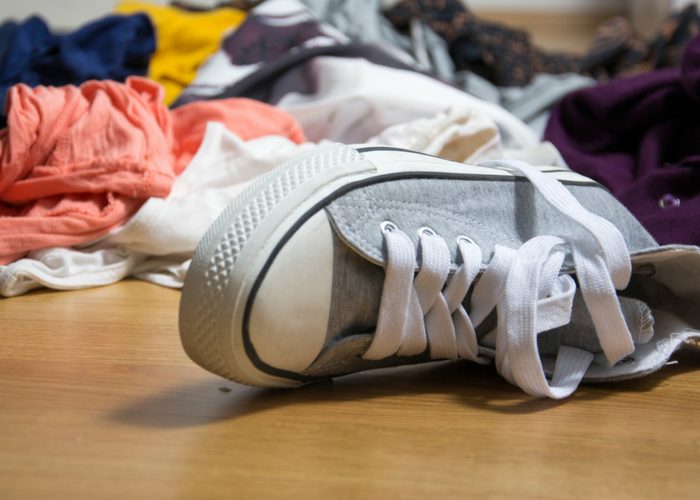
Sometimes our lack of mental clarity can be traced to a cluttered home. The good news is that since you know the source, you can take action now to fix it!
Many women feel like everything on their to-do list is urgent. When everything feels urgent, you never have room to breathe, let alone time to clean your kitchen. In reality, not everything is urgent. Slow down and take stock of what is actually important. Clutter happens when we make everything but ourselves a priority.
Figuring out how to organize your life can seem daunting, especially if you suffer from depression or anxiety. Tasks, like cleaning the house or throwing out old clothes, can seem insurmountable when your mind is full of clutter. A messy house or work space can be a direct symptom of how you’re feeling inside.
For women suffering from health disorders, cleaning up the house is probably the last thing on the to-do list. However, it’s been proven that reducing clutter in the home is an important step in improving the quality of your life.[1] Some evidence also suggests that clutter can put stress on a relationship whether it be a parent-child relationship or a relationship between spouses.[2]
Clutter can also cause social withdrawal. It’s difficult to invite company over when you are ashamed of the clutter in your home. Once that happens, the clutter in your mind starts to build as well. It’s a vicious cycle that can be stopped by learning how to declutter your home and your mind.
Benefits of Decluttering Each Room
Your bedroom is for sleeping so it should be a quiet, comfortable space. You need to have room to cook so your kitchen should be a clean, organized space. The same goes for every other room in your house. Every room has a function. Each function should be clear, and you should easily be able to perform those functions in each room. By decluttering, you’ll have much more organized spaces to live in.
Your bedroom
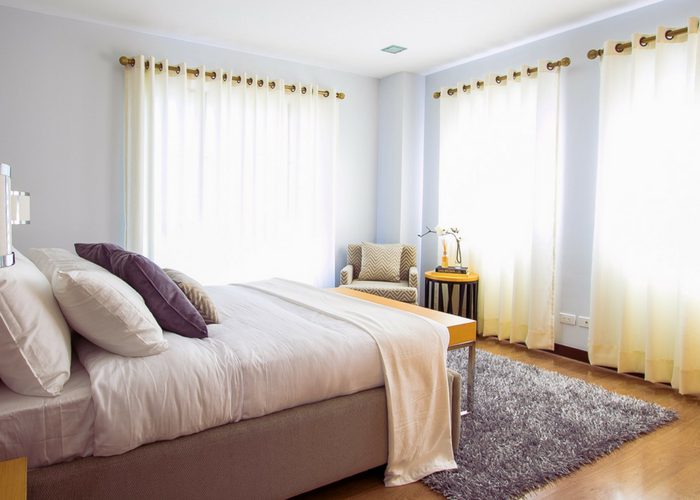
When you tidy up your bedroom, you tidy up your sex life. It’s hard to think about getting intimate in a room you hate. It’s also hard to sleep in a room you dread entering. Take care to keep clothes off the floor. Keep the bed made. Try to maintain an organized closet. You’ll sleep better, and you’ll feel much sexier.
Your kitchen

If you walk into your kitchen, sigh, and immediately think about ordering a pizza, you probably need to declutter. Get rid of pots, pans, and utensils that haven’t been used in the last twelve months. Wipe down counters and keep the dishes put away. It’s likely that when you tidy up your kitchen, you’ll also tidy up your diet!
Living room

We need room to breathe and space to relax after a long day. Walking into a living space that is cramped and cluttered makes you want to walk right back out and not look back. Spend 30 seconds each day picking up stray items from the floor and tables. Set aside ten minutes once a week to vacuum. Place pillows neatly where they belong. You’ll breathe easier once this is done.
Home office

Your home office might be filled to the brim with old manuals, tax papers, receipts, and more. Learning how to declutter your home office will lead to decluttering your mind. Label drawers and files. Organize important paperwork. Get rid of any trash. Decluttering can help you increase productivity and creativity.
To get more specific, let’s look at the small steps you can take right now to start learning how to declutter.
Fun fact: Decluttering could earn you some extra dough. Some consignment shops will pay for your used items.
5 Simple Tips to Get Organized
Want to know how to declutter your life? Luckily, you don’t have to set aside a whole day to get organized. You can start by setting aside just ten or fifteen minutes every day to declutter your home. Here are some tips to get you started.
1. Go electronic

Admittedly this one can be a bit scary but it is also the most liberating. First, it’s time to go through the piles of documents and files that have overstayed their welcome. Throw away or recycle everything that is no longer necessary in your life. Then, start transferring hard copies into digital. You’ll start seeing that mountain of documents getting smaller and smaller.
Next, how about those big stacks of photographs? It’s time to go digital. Get them scanned into a computer (there are professional companies that will do this for you) and then let go of the physical copies. It’s time to declutter your life, starting with all the stuff you no longer need.
2. Fifteen minutes every day
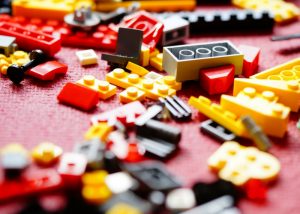
You don’t need to dedicate an entire Saturday to clearing out a closet and emptying the cupboards. This can become overwhelming very quickly. In general, when things become overwhelming, it’s unlikely that you’ll keep doing them. You want to be able to form healthy habits when it comes to decluttering your life. When you spend just 15 minutes a day cleaning up clutter, you’ll slowly begin to get in the habit of being organized all the time.
3. Trash or Treasure

As you’re learning how to declutter, it’s important to get organized and decide what to do with all your extra stuff. You can do this by using the “Trash or Treasure” method. First, divide your items into three categories — trash, donate, or keep. Then, as you go through each room, assign each item to one of these categories. Finally, throw “trash” items away, put away the “keep” items, and donate the rest. You’ll notice the clutter disappearing and see a more organized household within reach.
4. Mail call

Generally speaking, junk mail comes into households at an alarming rate. It’s important to immediately go through your mail and discard what isn’t important. Knowing how to declutter before it actually becomes clutter is an important part of the process. This organizational tip is easy and something you can quickly do every day.
5. Tidy up small spaces to make a big difference

By and large, household chaos and clutter can affect your quality of life and your sleep. Some scientific studies show that fatigue, depression, and sleep disruption can be directly linked to clutter and disorganization.[3] By living in a neat and orderly space, you’ll feel more relaxed, happier, and you’ll sleep better.
Fun fact: Try buying hangers that match. This will make you more likely to hang up your clothes in the closet every laundry day.
How to Declutter Your Home in 4 Steps
Decluttering your home doesn’t have to be overwhelming. This is especially true if you take it one step at a time.
- Identify the problem.
Choose one room to focus on so you don’t become overwhelmed. For example, your living room is a mess because your children leave toys all over the floor. Congrats, you’ve identified the problem! - Brainstorm solutions to this problem.
Grab a pen and paper and start listing ideas on how to solve your problem. If you have messy children, some examples of this particular problem could be:
– Buy a toy box for the living room
– Keep all toys elsewhere in the house
– Have the kids clean up every day as part of their daily chores
– Throw away and donate old toys
– Take five minutes every day to tidy this room before going to bed - Make a plan.
Now, choose one or two of your best solutions to start making your decluttering plan. You can even combine them. For instance, go through old toys and donate things that aren’t being used. Another example would be buying a toy box so the toys have a designated home. Finally, you could move the toys to another room altogether to keep the mess contained in a separate space. - Put your plan into action.
The last step is to create a date and time to begin this plan. Write it on the calendar and make it official. For example, have a sit down with your children and go through the toys together. Or, plan a shopping day to buy a new toy box or other organizational storage. Also, plan to load up the car with the specified donate items and deliver them to right places. Additionally, every evening spend 5 minutes picking things up before heading to bed.
That’s all there is to it! Repeat these steps for each room in your house. As you complete this for each room, the solutions will get easier, and the actions will begin to become a habit. Now you know how to declutter your home, it’s time to declutter your mind.
Practical Advice to Declutter Your Mind
Decluttering your mind helps keep you mentally fit and healthy. Learning how to declutter your mind and how to organize your life is as important as decluttering your physical surroundings. Once you’ve taken action on your house, it’s time to declutter your mind. Here are some practical decluttering tips you can try.

Prioritize
Remember, not everything is urgent. In fact, try this: Divide your daily or weekly to-do lists into four categories — important, not important, urgent, not urgent. You can do this in your head, but it will work better if you draw a big box on a piece of paper. This is really going to help you put things in perspective. Most importantly, you’ll get a better understanding of what is truly urgent and what can wait. This results in reduced stress which is one major component of decluttering your mind.
Take inventory of mementos
Sometimes it can be hard to let go of things. Often, we keep physical mementos to remind us of our past. At times we keep mementos that take up space but don’t necessarily bring us happiness. In essence, ask yourself why you are keeping something. Is it guilt? Is it because you are afraid to forget someone or something? Does it make you feel overwhelmed or happy?
If you aren’t sure how to start dealing with negative emotions that arise, talk to a therapist. They can guide you in ways to let go of things that are weighing you down. Once your mind is decluttered from negative thoughts, you’ll be able to decide what mementos are worthy of taking up space.
Make yourself a priority
Decluttering your life is about self-care. Self-care is a selfless act. You should put YOU at the top of your priority list. Making yourself a priority is necessary for happiness and well being. With this in mind, do things that reduce the stress you feel in your life.
- Date yourself once a week. Set a time and place to do something you love every week, even if no one joins you.
- Allow yourself quiet time. Take a time out from all your responsibilities once a day for ten minutes. Take that time to meditate or simply close your eyes and relax.
- Eat healthy. Women are busy all the time, it seems. One thing you can do to make yourself a priority is make sure you are giving your body the proper fuel.
- Exercise every day. You don’t even have to get sweaty. A quick little walk around the park will do. Getting sun and fresh air will invigorate you for whatever is ahead.
Self-care is important on the path to decluttering your mind. When we make time to take care of ourselves, we reduce our stress.

Journal
Journaling is a great way to figure out what your mind and your body needs. Studies have shown that by engaging in meaningful writing activities, signs of major depression were significantly reduced.[4] Luckily, there are clear, actionable steps that can help you get rid of the clutter in your mind.
- Journal as soon as you wake up.
You can consider this a “brain dump” at the beginning of your day. Before you even get out of your pajamas, pick up a pen and just start writing. Write for ten minutes without stopping. Write whatever comes to mind. This is something that no one else will ever see, so get everything out of your brain and onto the page. Doing this at the beginning of the day declutters your mind and helps keep stress at bay. - Be grateful every day.
At the end of each day, take ten minutes to write down three things you are grateful for. Try doing this for one whole month without repeating anything on your gratitude list. This can help train your brain to see more positivity in your everyday life. - Use writing prompts.
Finally, if you aren’t keen on either of those options, try writing prompts. These prompts are just ways to get the words flowing and onto the page. You’ll be decluttering your mind without even trying. Here are some writing prompt examples to get you started.
– If you could change one thing about this day, what would it be and why?
– What do you want to achieve today?
– If you could be anything, have anything, or do anything, what would it be?
– Make a list of your positive habits.
Meditate
If you are figuring out how to declutter your mind, meditation is a must. In brief, the health benefits are endless. Meditation has been shown to reduce stress and decrease anxiety.[5] Here are some tips to incorporate meditation into your daily routine, even if you’re a beginner:
- Begin each day with a 30-minute meditation routine. Choose a quiet and comfortable place in your home and make it your designated meditation space.
- End each day with a 30-minute meditation routine. Allow yourself to relax and unwind from the day’s stress.
- Try taking a five-minute meditation break every time you feel anxious or stressed.
- Download some guided meditation apps. You can do this on your phone, or even find videos online that help guide you through calming routines.
- Try to meditate for just one week and see how much different you feel. In fact, studies have shown that people who meditate for seven days in a row were more alert and focused than those who did not meditate.[6]

Essential oils
A study in 2013 proved that using essential oils was effective in reducing anxiety and improving sleep.[7] Also, choosing your favorite scent can help you relax while you meditate. You can also use essential oils in the bedroom to help you sleep better. Being relaxed and well-rested is the first step in learning how to declutter your mind. You can do that using essential oils. Some great oils to try for reducing stress are:
- Bergamot
- Lavender
- Sandalwood
- Orange
- Peppermint
- Or try combining lavender and sandalwood, or orange and peppermint for a stress-busting effect
Media diet
Last but not least, get off your phone. Get off the couch. Reduce the amount of television you watch. Put down the phone for at least a few hours a day. Using social media has actually been proven to increase depression.[8] Not only that, but it also reduces your mindfulness. Pay more attention to your surroundings and less attention to media (social or otherwise).
If you need help with a social media diet, there are apps that can track time spent on sites like Facebook or Instagram. This way you can get an accurate idea of where your time is being spent. This is an easy and practical way to declutter your mind.
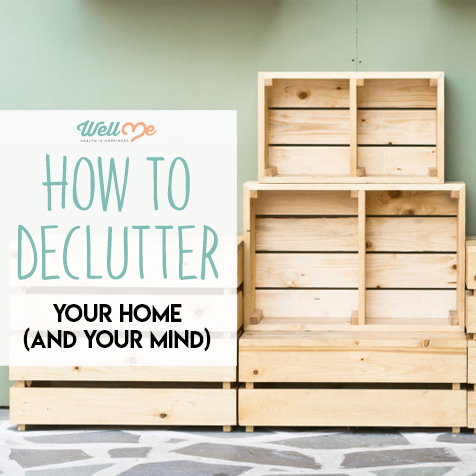
Conclusion
Knowing how to declutter is only one part of the equation. Learning how to declutter (and actually doing it) is something that takes a little more work. But it’s not impossible and can even start out with something really small. When you declutter your home and declutter your mind, what you’re really doing is decluttering your life. All the steps discussed here are small, actionable tips that you can start today.
References
- [1] https://www.ncbi.nlm.nih.gov/pmc/articles/PMC4507516/
- [2] https://www.ncbi.nlm.nih.gov/pmc/articles/PMC4507516/
- [3] https://europepmc.org/articles/pmc4770802
- [4] https://www.ncbi.nlm.nih.gov/pmc/articles/PMC3759583/
- [5] https://www.ncbi.nlm.nih.gov/pmc/articles/PMC4895748/
- [6] https://www.ncbi.nlm.nih.gov/pmc/articles/PMC6004402/
- [7] https://www.ncbi.nlm.nih.gov/pmc/articles/PMC3588400/
- [8] https://www.ncbi.nlm.nih.gov/pmc/articles/PMC4853817/

